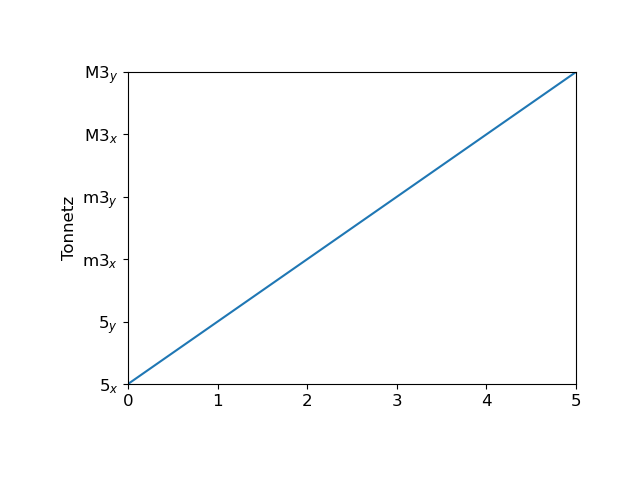Caution
You're reading an old version of this documentation. If you want up-to-date information, please have a look at 0.9.1.
librosa.display.TonnetzFormatter¶
- class librosa.display.TonnetzFormatter[source]¶
A formatter for tonnetz axes
See also
Examples
>>> import matplotlib.pyplot as plt >>> values = np.arange(6) >>> plt.figure() >>> ax = plt.gca() >>> ax.plot(values) >>> ax.yaxis.set_major_formatter(librosa.display.TonnetzFormatter()) >>> ax.set_ylabel('Tonnetz') >>> plt.show()

- __init__(*args, **kwargs)¶
Methods
__init__(*args, **kwargs)create_dummy_axis(**kwargs)fix_minus(s)Some classes may want to replace a hyphen for minus with the proper unicode symbol (U+2212) for typographical correctness. This is a helper method to perform such a replacement when it is enabled via :rc:`axes.unicode_minus`.
format_data(value)Return the full string representation of the value with the position unspecified.
format_data_short(value)Return a short string version of the tick value.
format_ticks(values)Return the tick labels for all the ticks at once.
get_offset()set_axis(axis)set_bounds(vmin, vmax)set_data_interval(vmin, vmax)set_locs(locs)Set the locations of the ticks.
set_view_interval(vmin, vmax)Attributes
axislocs